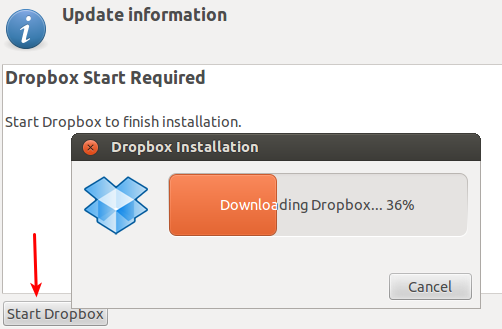Install Expect Ubuntu 12.04
Installing GRUB is the usually the best way to go, whether or not you're dual-booting, but to install Ubuntu 12.04 without GRUB, download the alternate CD for. Run the install as normal, after the Select and install software step, the installer will run Install the GRUB boot loader on a hard disk. It will tell you what other operating systems, if any that it's found, and ask if it should install, at this point, choose Go Back, then in the installer menu that appears next, choose Continue without boot loader. Please be aware that after installation you will have to configure your existing boot loader before you can boot your new installation of Ubuntu. Edit: As ignis says below, an alternate install CD for Ubuntu 12.10 is not available, but you can still use the same method as listed above, with the same links, and upgrade from 12.04 to 12.10 after installation, alternatively you can run Ubuntu 12.10 from a live disc and start the installation with ubiquity --no-bootloader as mentioned in StefK's answer.

Here you'll find instructions on how to install and uninstall software from the following linux releases. Instructions on how to install python-pexpect on Ubuntu 12.04 (Precise Pangolin) using command-line. ZPanel Web Hosing Control Panel For Ubuntu. Tutorial Overview. Install ZPanel on Ubuntu. What to Expect in Ubuntu 14.04 LTS. By Joey Sneddon under News November 25, 2013. You Can Now Install Snap Apps on Ubuntu 14.04 LTS. Linux 4.12 Really. The default repositories for Ubuntu 12.04 include tcl/tk8.5 which I have installed but I need the latest version.
How to install new tmux 1.8 on Ubuntu 12.10 or 12.04? But don't expect new version to appear there instantly. All its dependencies are met in Ubuntu 12.04.3. Install Redmine: (See also Installing.
I downloaded the source for expect5.45, and am attempting to install it. Tclsh is on the system at /usr/bin/tclsh, but I'm not sure if that means the machine also has 'tcl' installed?
The instructions for Expect state: By default, the Tcl source directory is assumed to be in the same directory as the Expect source directory. For example, in this listing, Expect and Tcl are both stored in /usr/local/src: /usr/local/src/tcl8.0 (actual version may be different) /usr/local/src/expect-5.24 (actual version may be different) If Tcl is stored elsewhere, the easiest way to deal with this is to create a symbolic link to its real directory. For example, from the Expect directory, type: ln -s /some/where/else/src/tcl8.0. I have tried making that symbolic link multiple times in various location, but I am linking to tclsh, not tcl, which I think is the problem. Is there a difference between these two?
I can run tcl scripts fine on the machine as it is. When running './configure' the following error happens: checking for Tcl configuration. Configure: error: Can't find Tcl configuration definitions (To be clear, I cannot put expect in the 'normal' directories because I don't have write access to them. It will go into my personal home directory. And I don't have permission to use sudo apt-get. This is an Ubuntu 14.04 machine.).
Also, unless you have a very specific requirement for tcl and expect and already know those languages, you're probably better off using either python and pexpect or perl and Expect.pm. Both provide the same expect-like features as expect but with more generally useful languages. Tcl isn't quite dead, but it's not far from it. Eroge English Game For Pc. Both python and perl will amost certainly be installed already and both support installing library modules (such as pexpect and Expect.pm) under your home dir, so no root access is required. – Nov 20 '15 at 20:15 •.